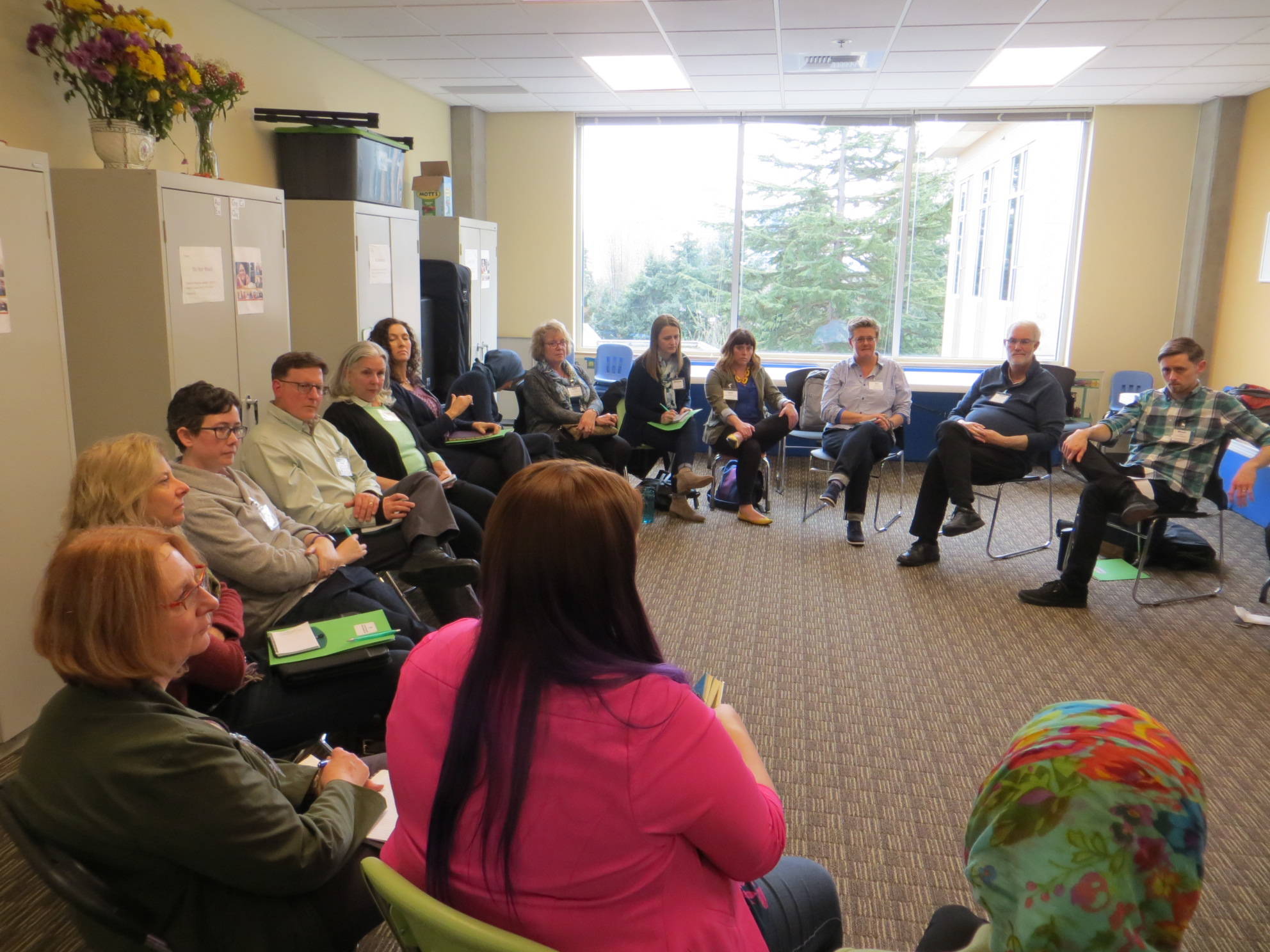Back in December 2018, I wrote a column about how we need to talk about race.
And just three months later, on March 29, the Eastside Race and Leadership Coalition (ERLC) held a race and equity summit in Bellevue.
I’m not saying people listened to me. But I’m not not saying it.
(Ok. But real talk, this was ERLC’s second annual summit, so I’m sure the event was probably in the works before I wrote my column.)
This year’s theme was “Taking Courageous Action” and the event featured speakers of color who shared their personal stories as well as breakout sessions touching on topics ranging from what communities can do to address rising hate crimes and what policies are needed to address equity, inclusion and racial justice, to how we can support youth of color in our communities and how people of color can safely navigate workplaces.
I was fortunate enough to attend the latter half of the all-day event.
Kalika Curry was the afternoon’s keynote speaker.
Curry is a longtime Eastside resident and works as a community impact manager for Eastside Pathways, a community-wide partnership that works collectively to attain better outcomes for children, cradle to career. She went through the Lake Washington School District and her three children were even born in the same hospital as her. During her speech, she shared a bit about her experiences growing up biracial with a black father and white mother.
“My mom is a beautiful blonde. My dad is the yummiest dark chocolate,” Curry shared with the audience.
But growing up, she often had to choose her race.
“I still couldn’t be all of me,” she said. “I was never white and I was never black, and everyone wanted me to choose.”
Curry’s words made me think of one of my best friends. While their father is white and their mother is Filipina, my friend and her three siblings mostly favor their mother. Because of this, I would often forget and as a result, dismiss my friend’s white side despite her being just as much white as she is Asian. It took me a while to realize what I was doing but once I did, I apologized to my friend, who fortunately, was very forgiving.
As Curry went on about some of her experiences as a child, one in particular stuck with me. One time when she was in Sunday school at a mostly white church with her mother’s side of her family, the other children asked the teacher why her skin is darker than theirs. Curry told the audience that the teacher said it was because she had sinned against Christ.
And by the gasp this evoked from the rest of the audience, I would say that story stuck with a number of other people that day as well.
Curry also shared the concerns she has for her children, who like her father, she described as “so chocolate and so yummy.” She home-schooled her children for several years so they were safe and not tokenized as the “only one.” Now, her three children are at school with their peers.
“I’m trusting you all with my kids,” Curry told us. She’s trusting us to value them like she does, and that they are not broken when they go home and need to be put back together.
Now, I don’t have children but I would think wanting our loved ones to be valued as we value them is a pretty universal feeling.
But with so many stories in the news about how black people are treated in society — from having the police called on them for merely existing and taking up space in their communities, to falling victim to police brutality — I can understand Curry’s emphasis on trust.
There’s the saying that “it takes a village” to raise a child.
We are that village — not just for Curry’s children but for all children (as well as all non-children because human beings are always growing and learning at all ages).
This being said, we need to find a way to come together, work together so we can just be together.
And yes, this means white people as well.
During one of the breakout sessions I popped into, there was a discussion about how people can show up to these conversations about race and how they can participate. In response to this, one white man in the session asked, “Am I really wanted in that space?”
My answer to this is yes. Because as people of color, sky is the limit when it comes to talking about the struggles many of us have faced. But nothing will get better if we don’t let everyone in on things. People of color can assert themselves and demand for equity in any number of things, but until others around them understand why it is important to them, it will be a steep, uphill battle.
Because allyship can only go so far. An ally is just there to say they support us but is able to step back and remove themselves from the situation when things go down, sideways, pear-shaped or any other euphemism for “bad.”
What we need are accomplices: People who are willing to get their hands dirty and willing to put in the work for equity alongside the rest of us.


